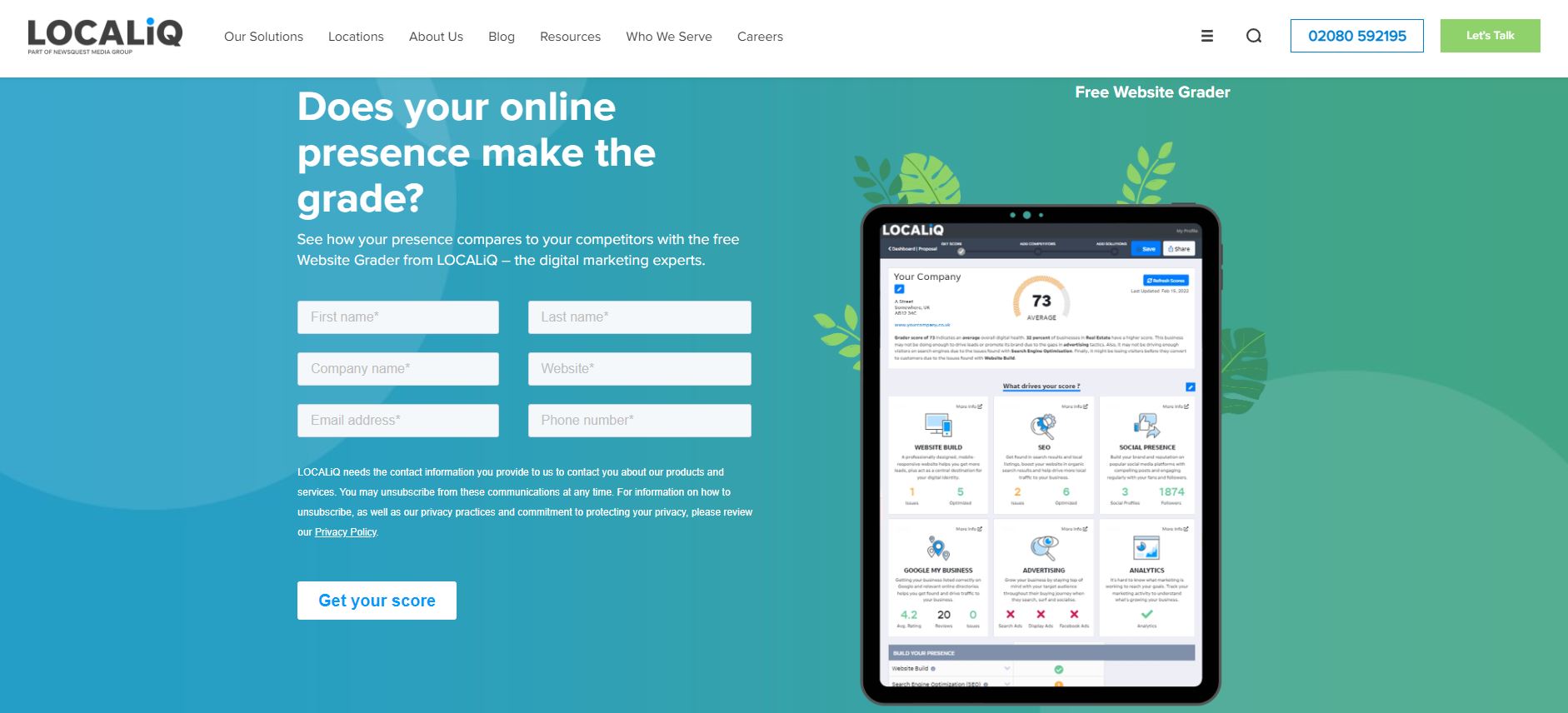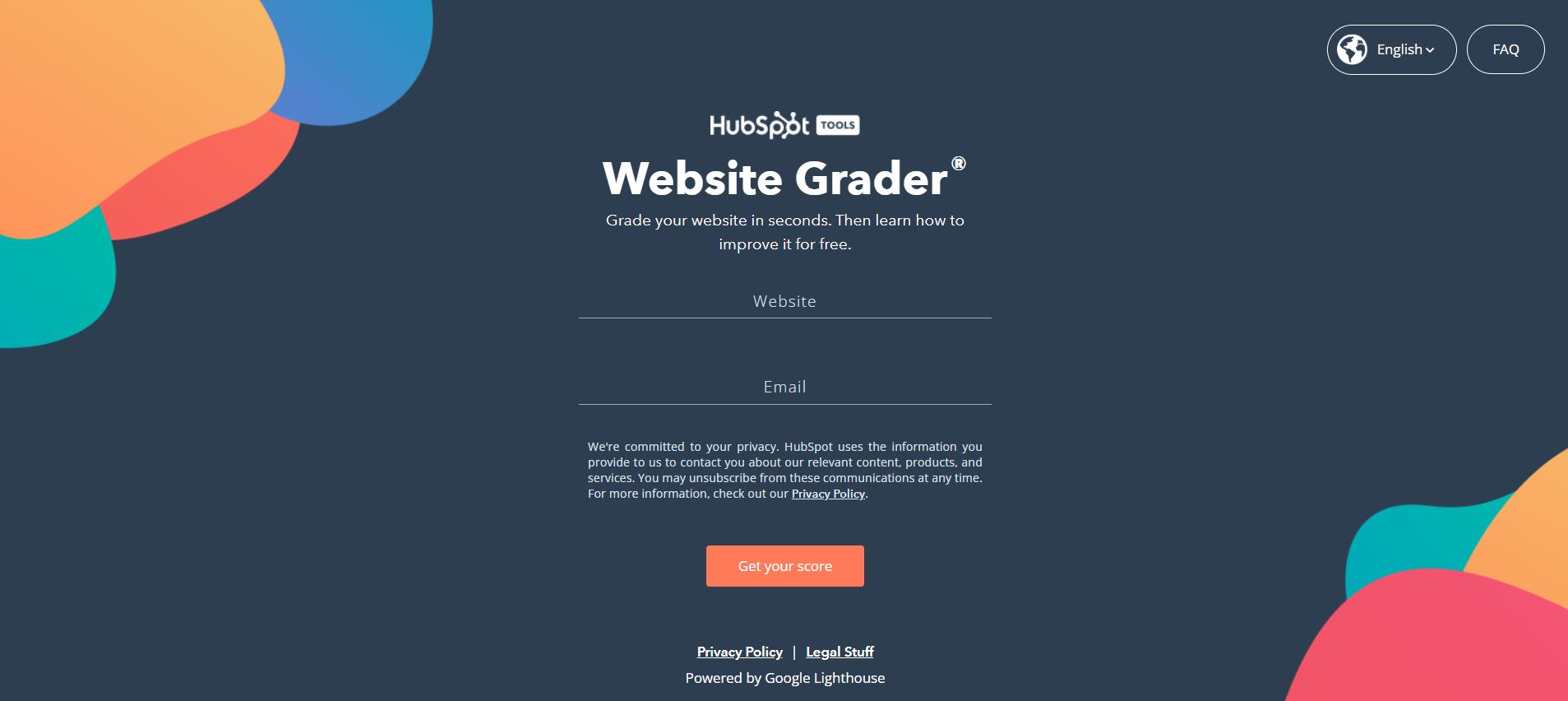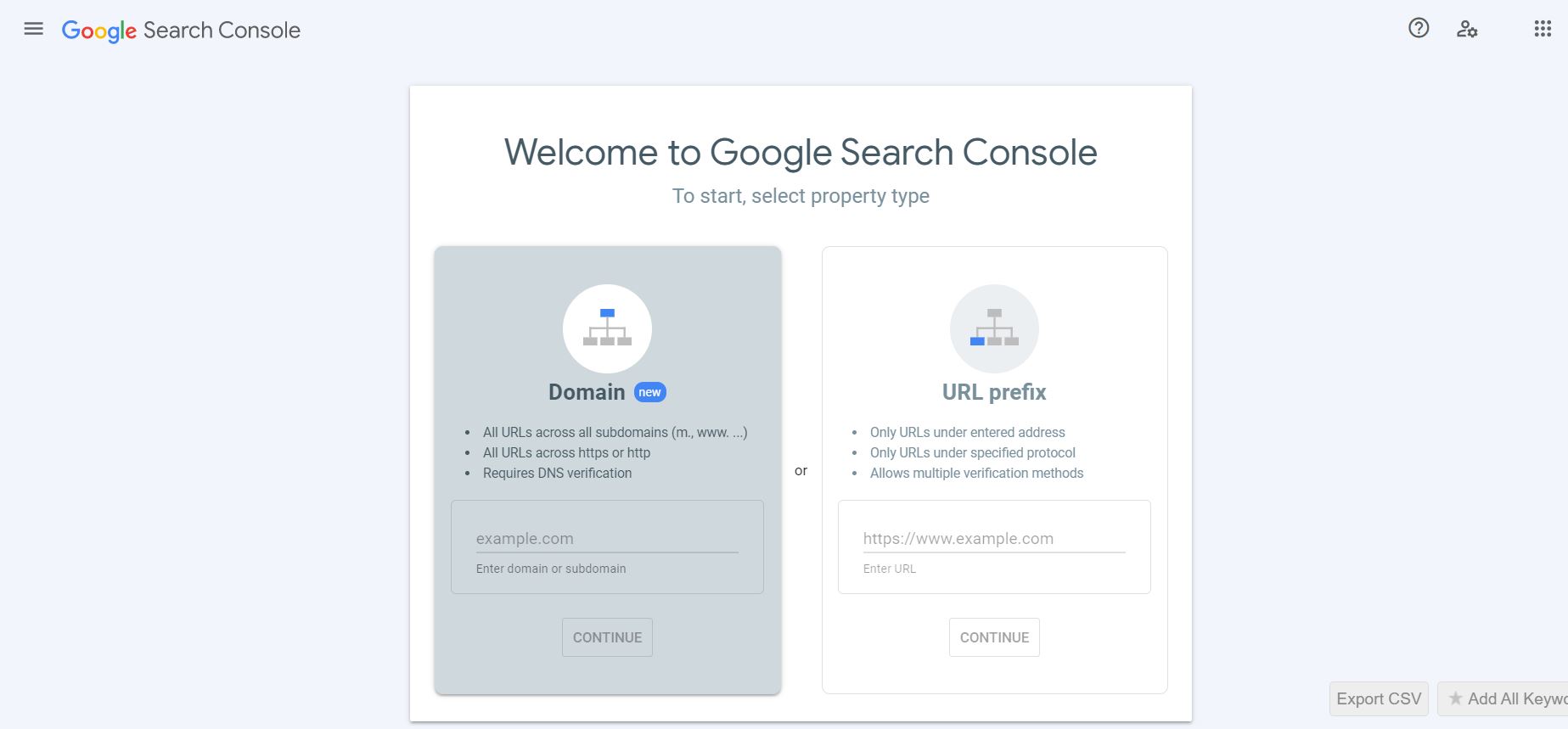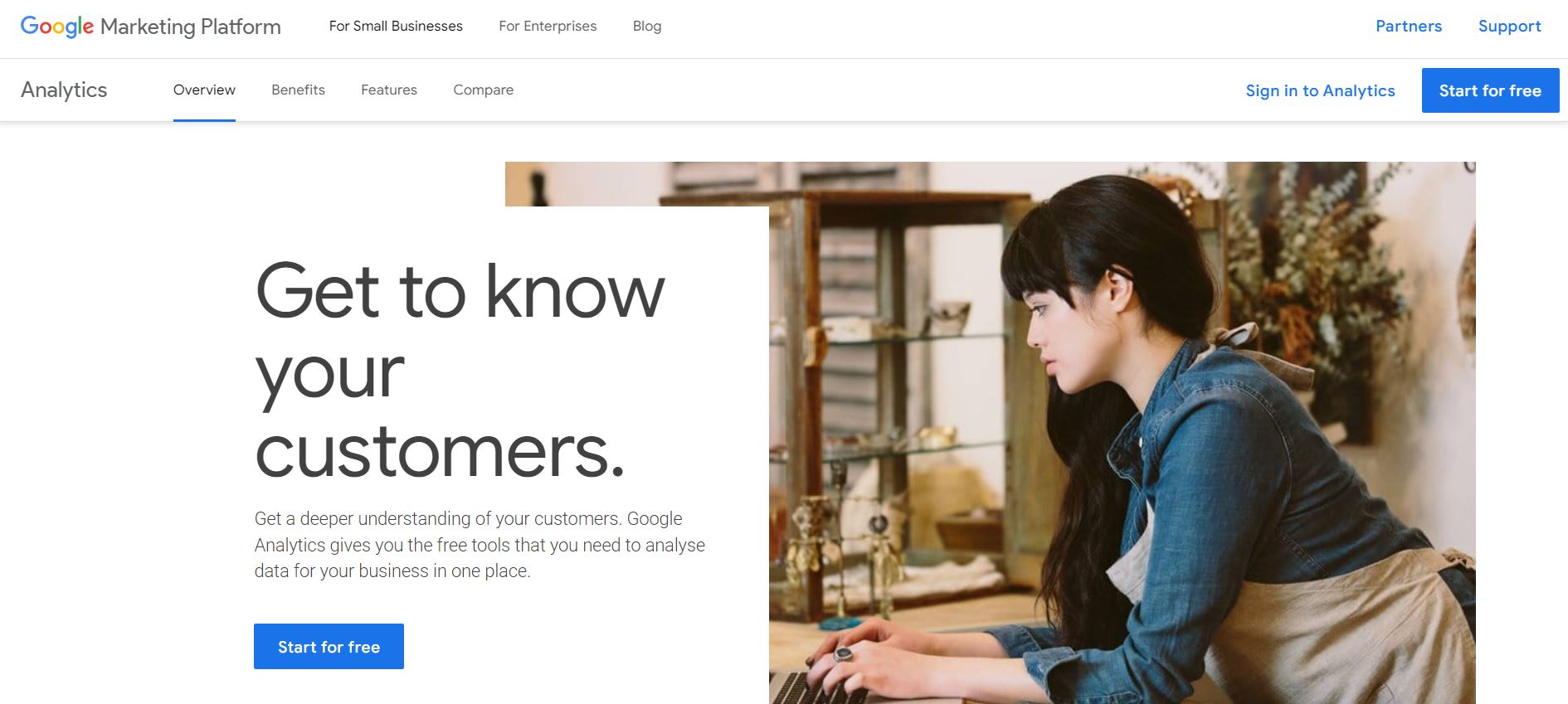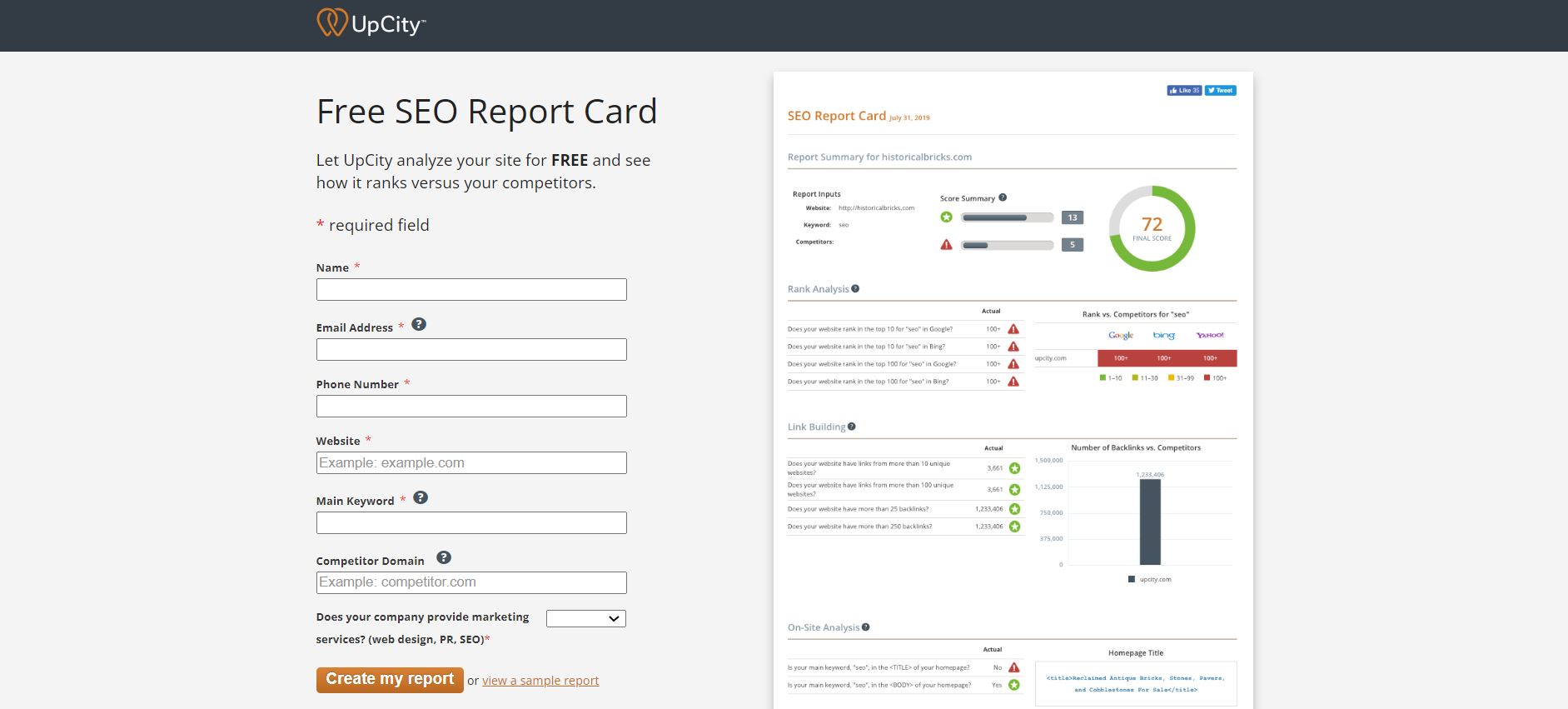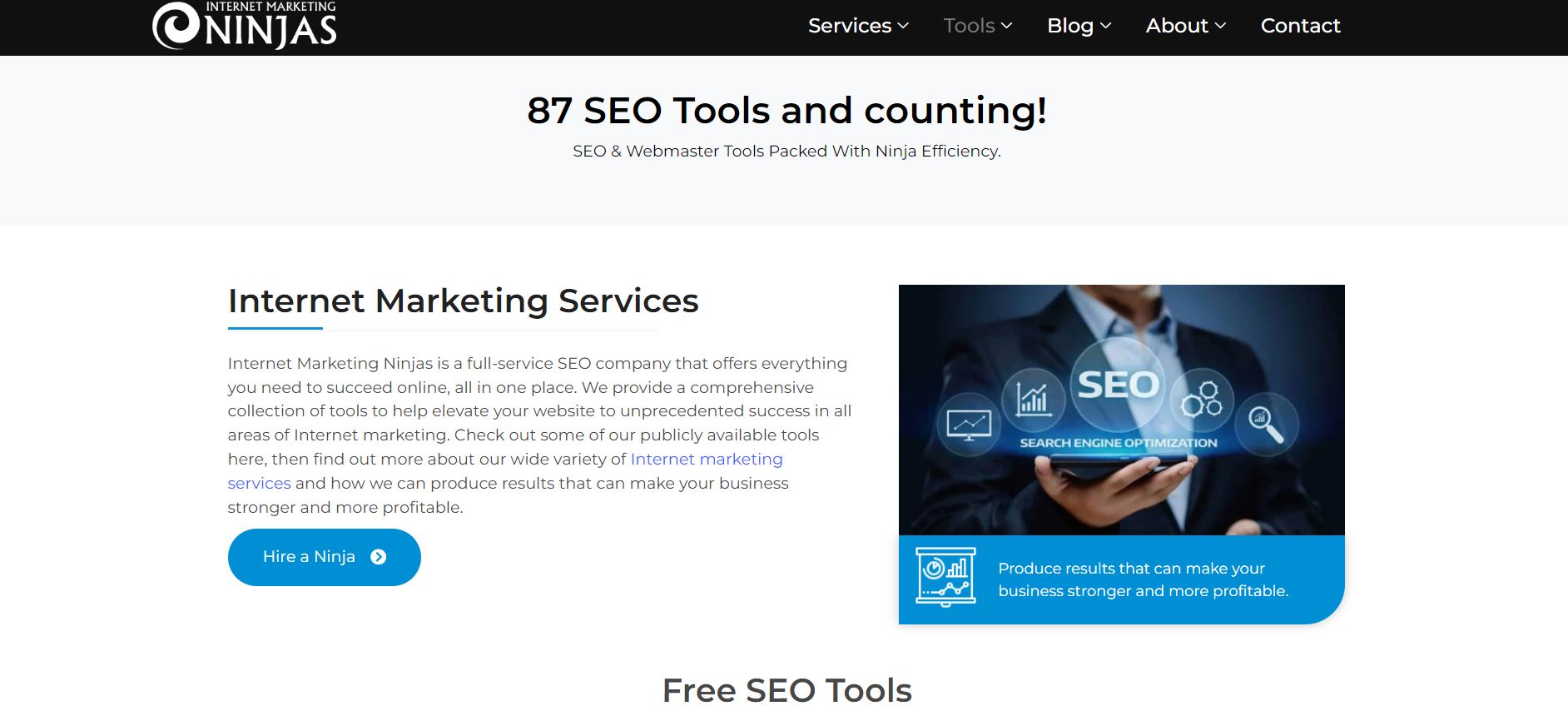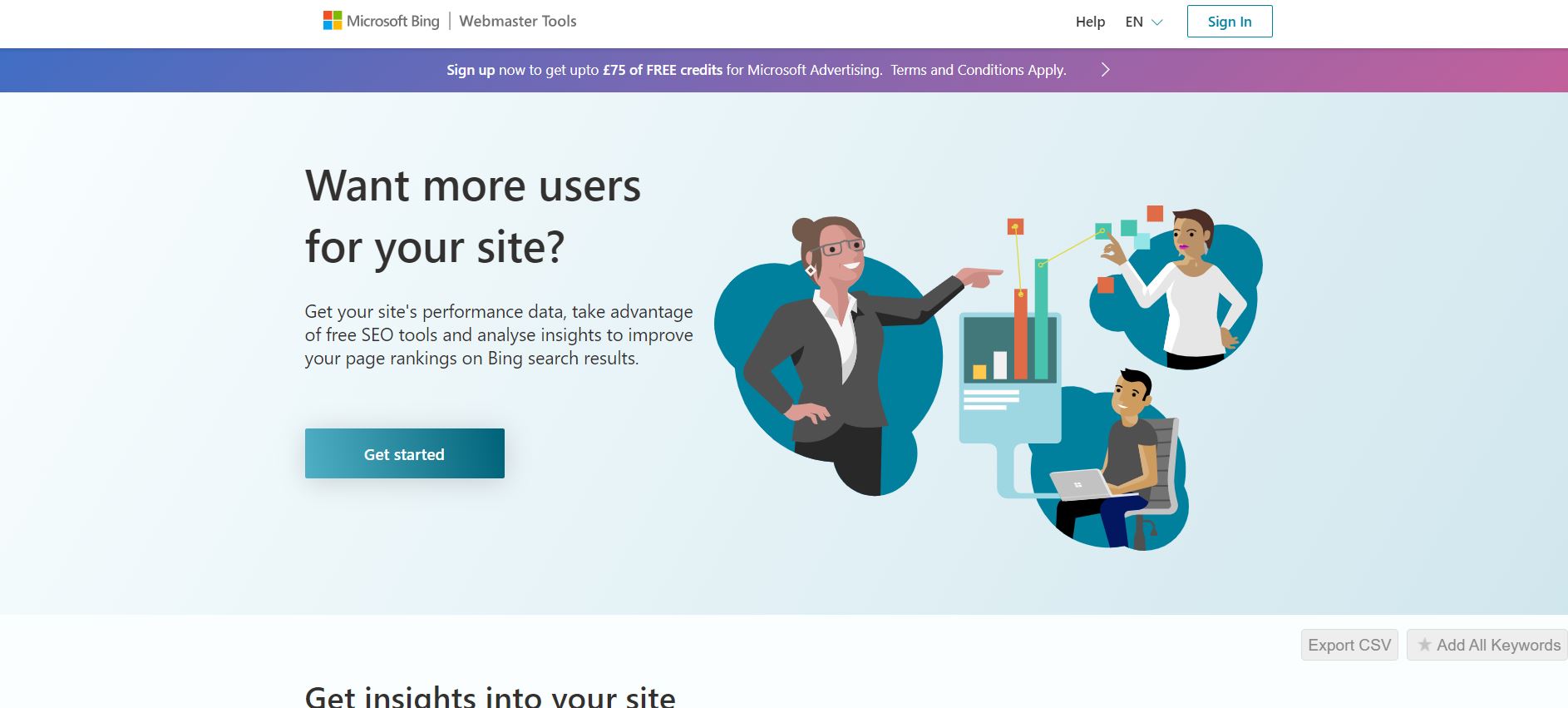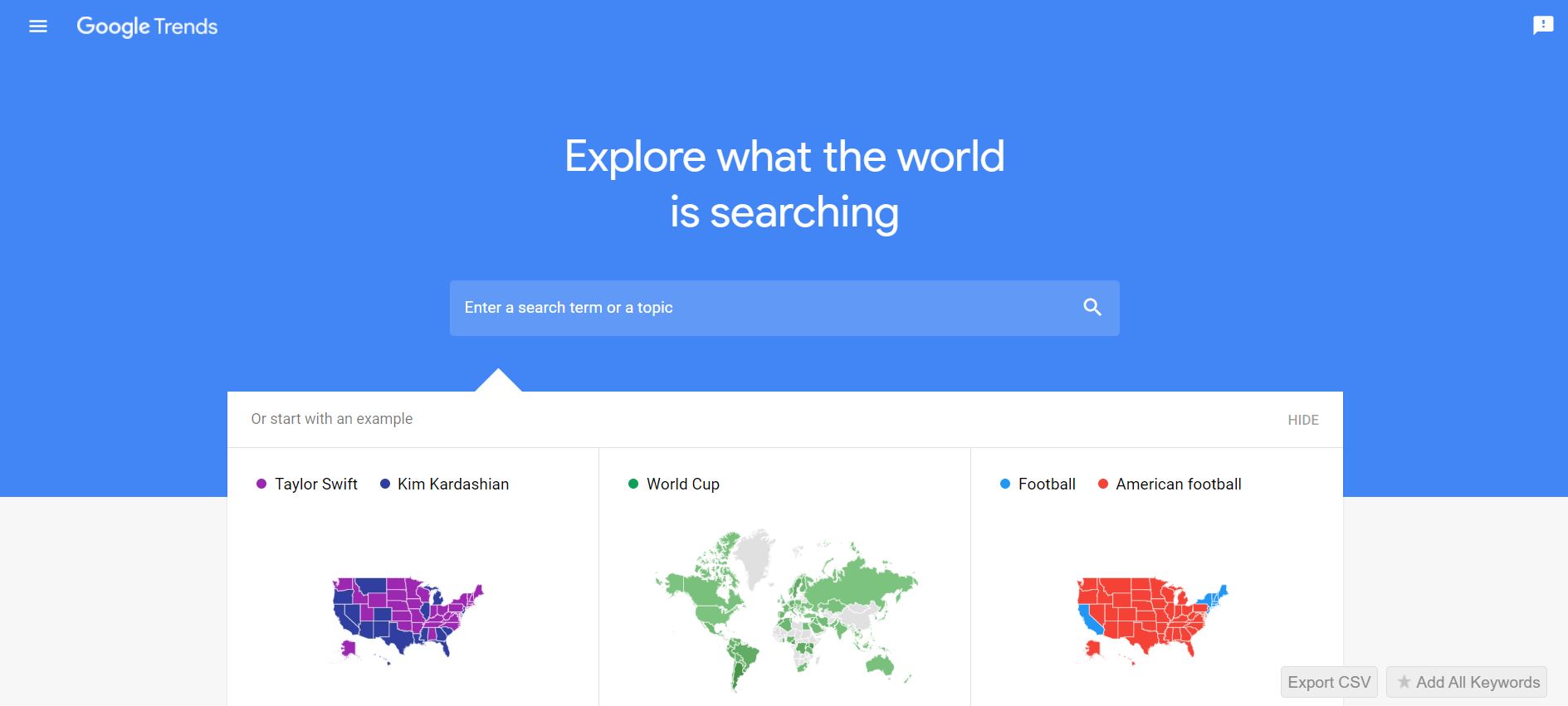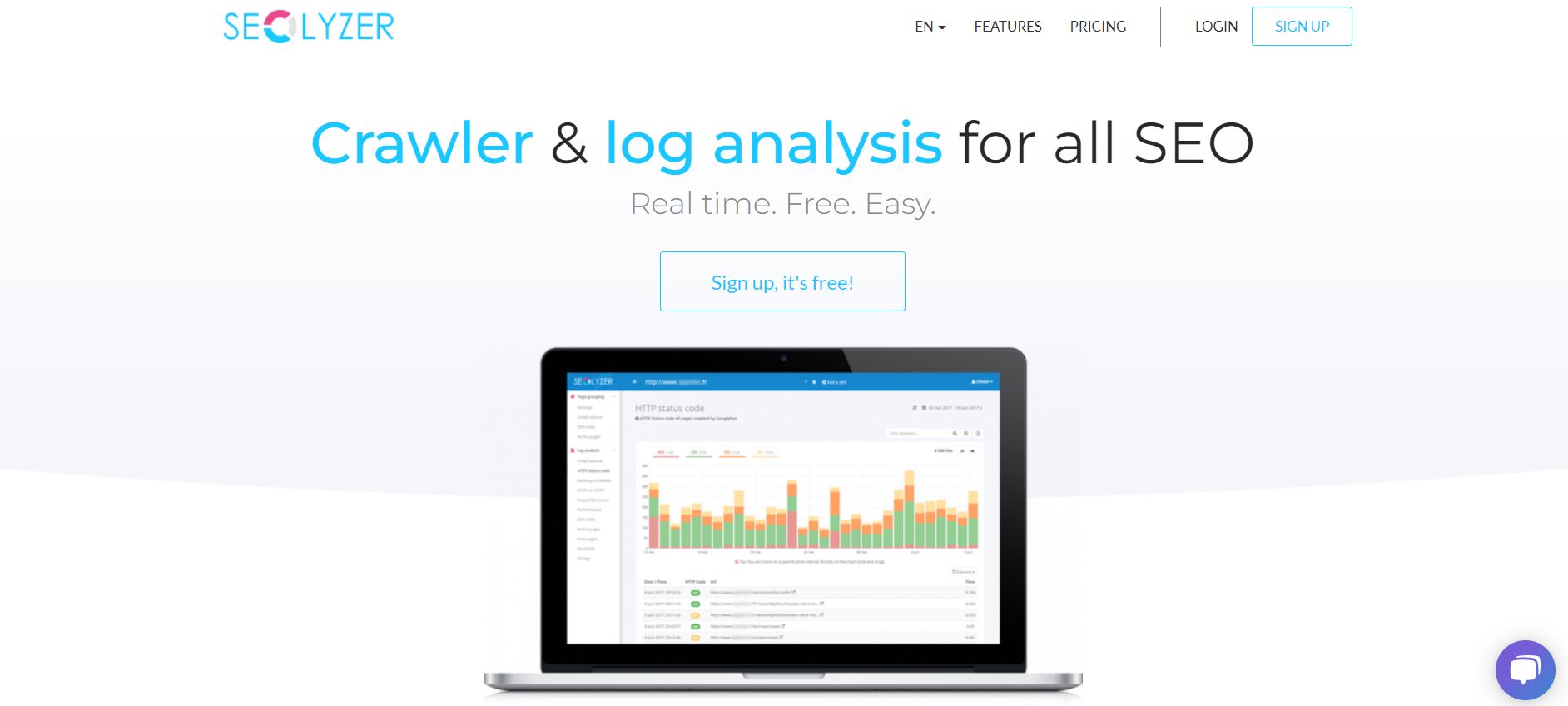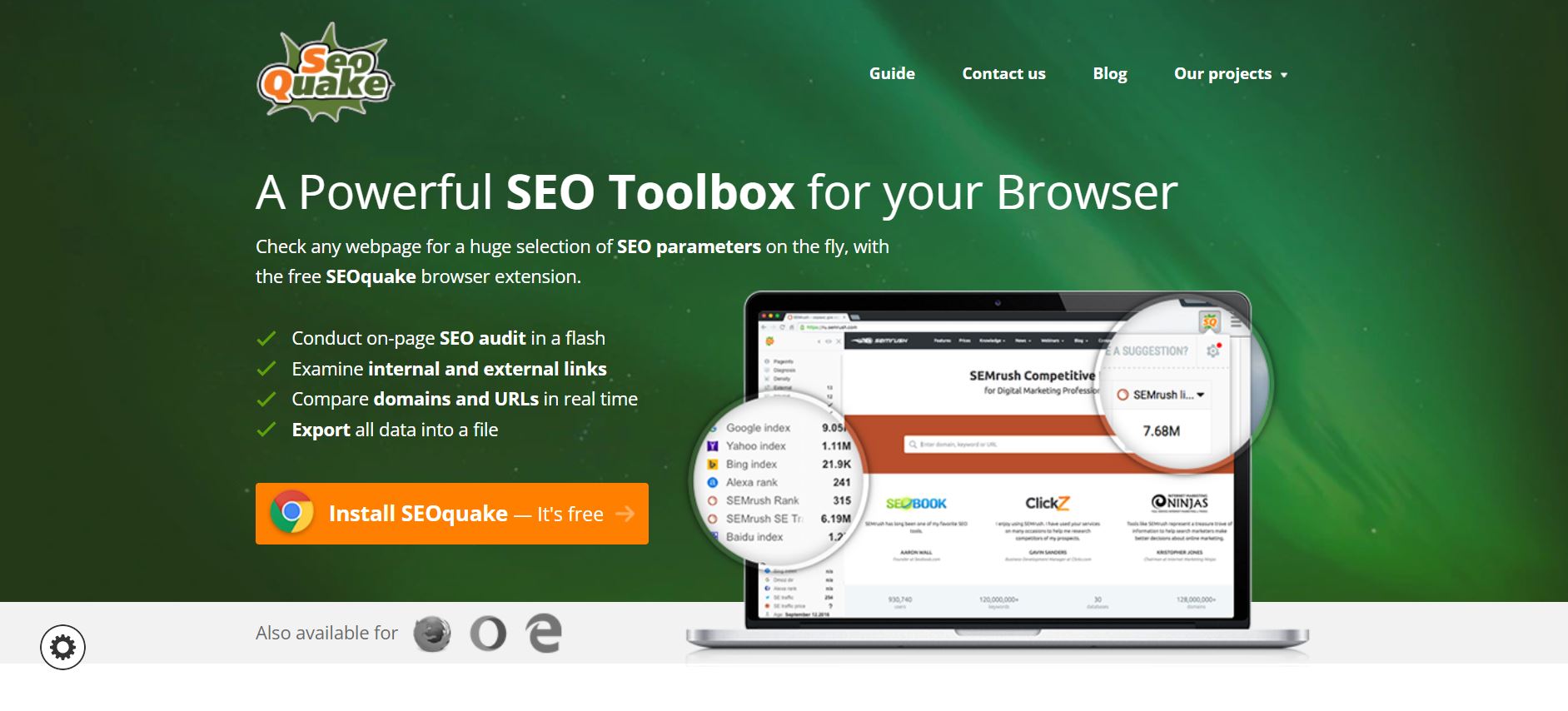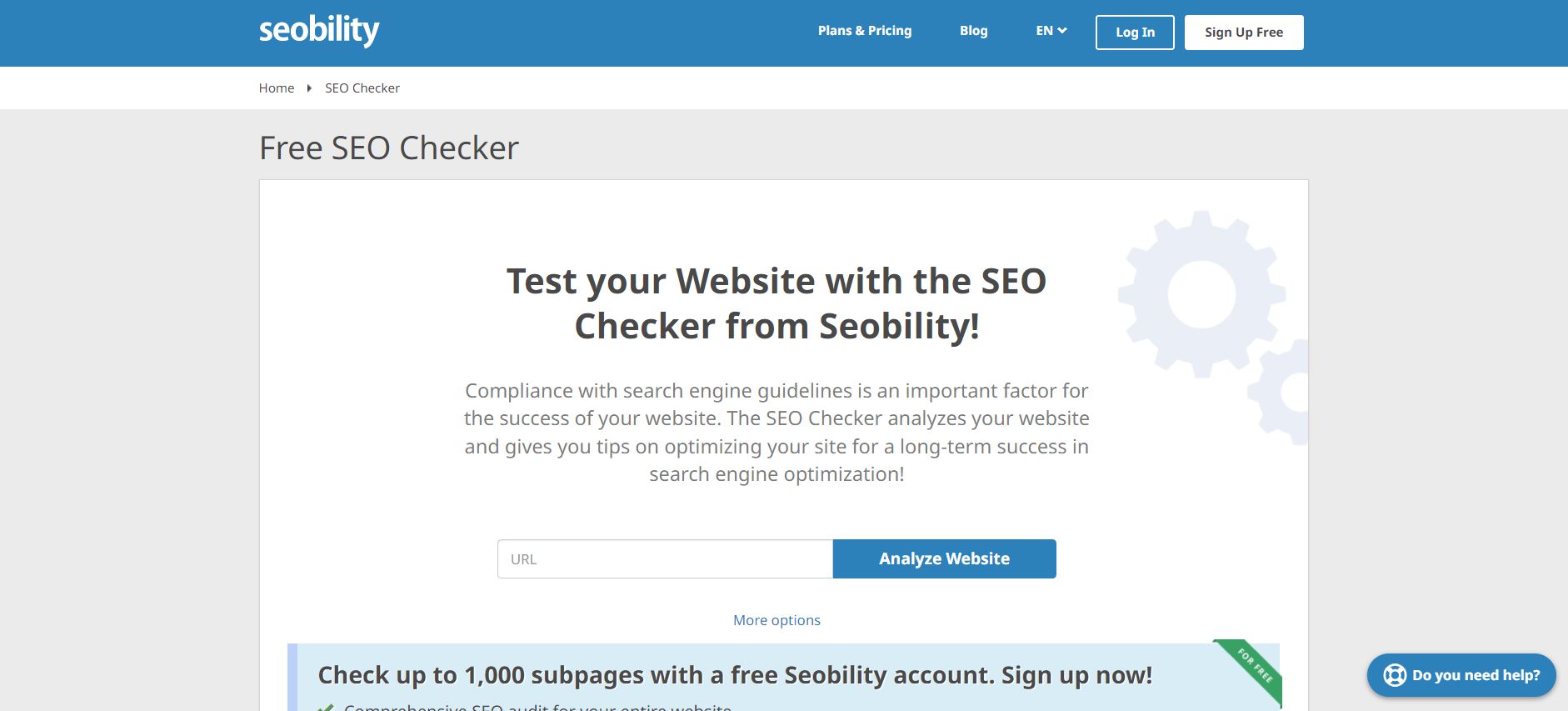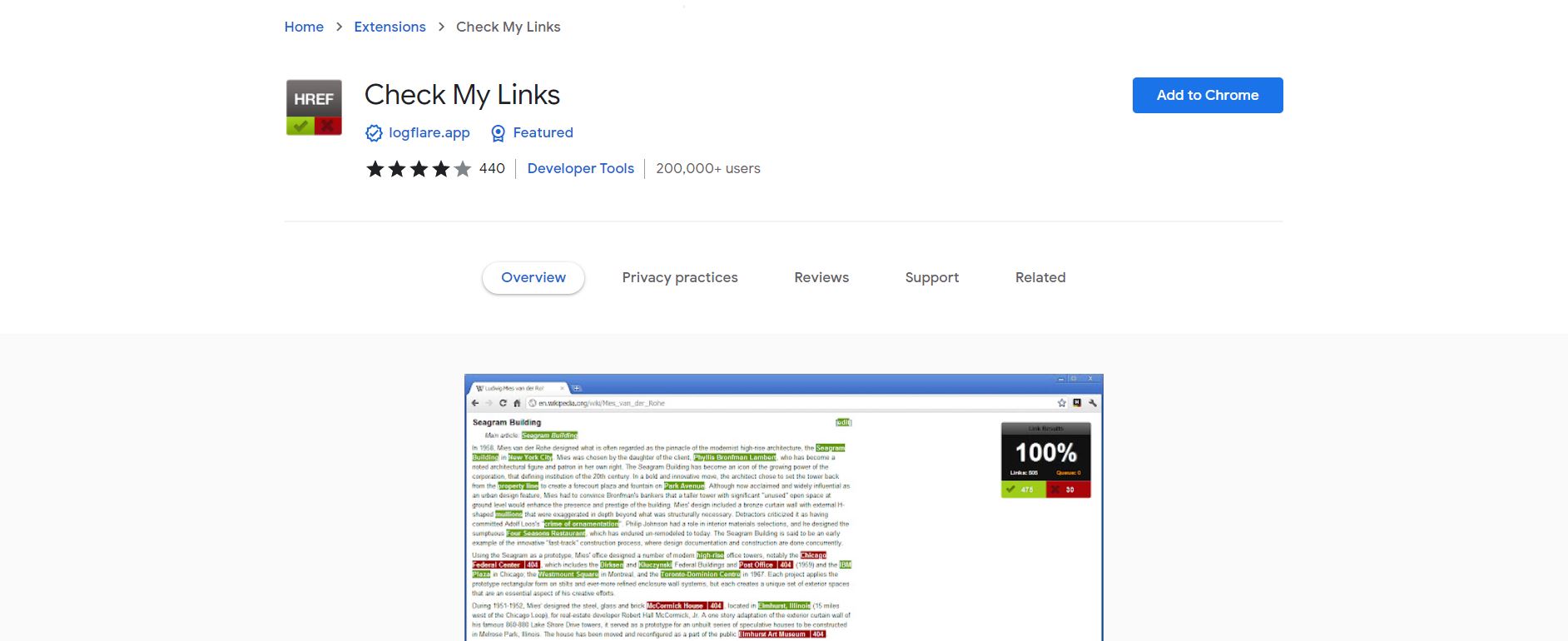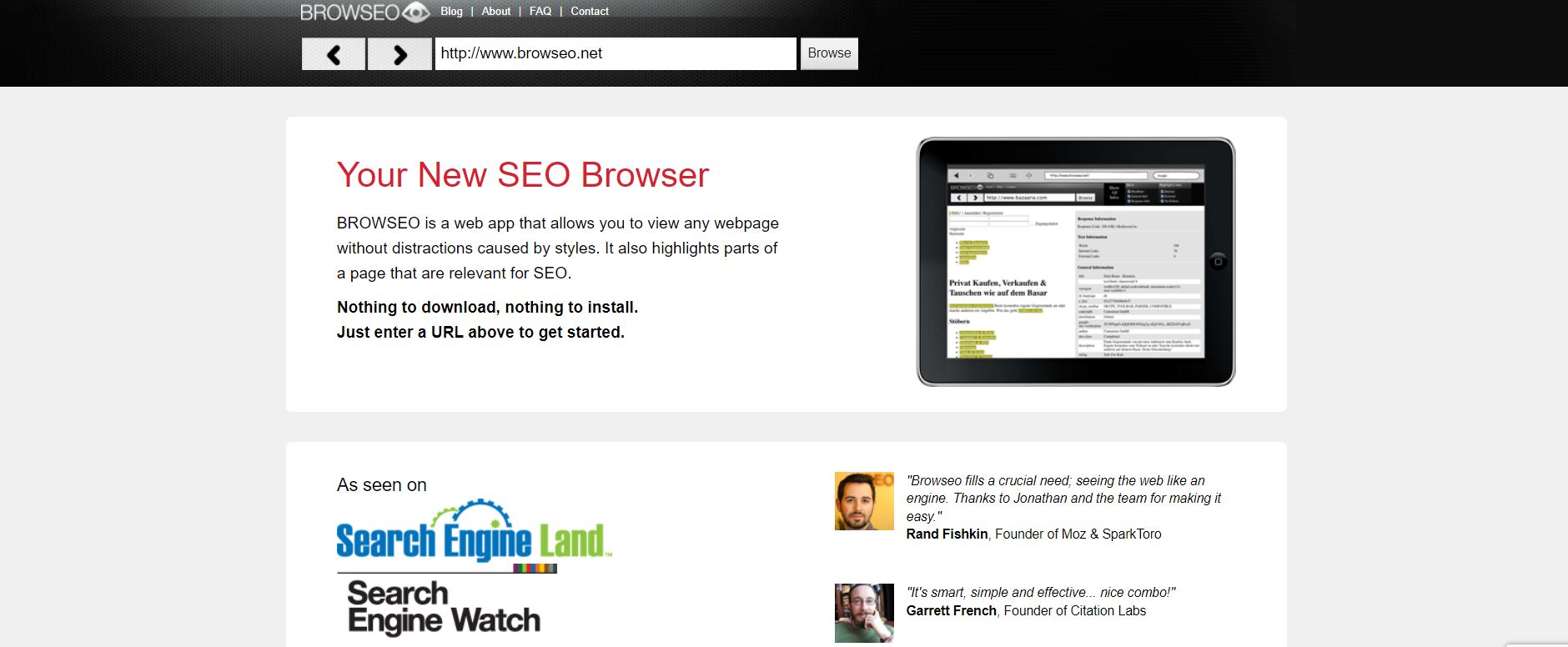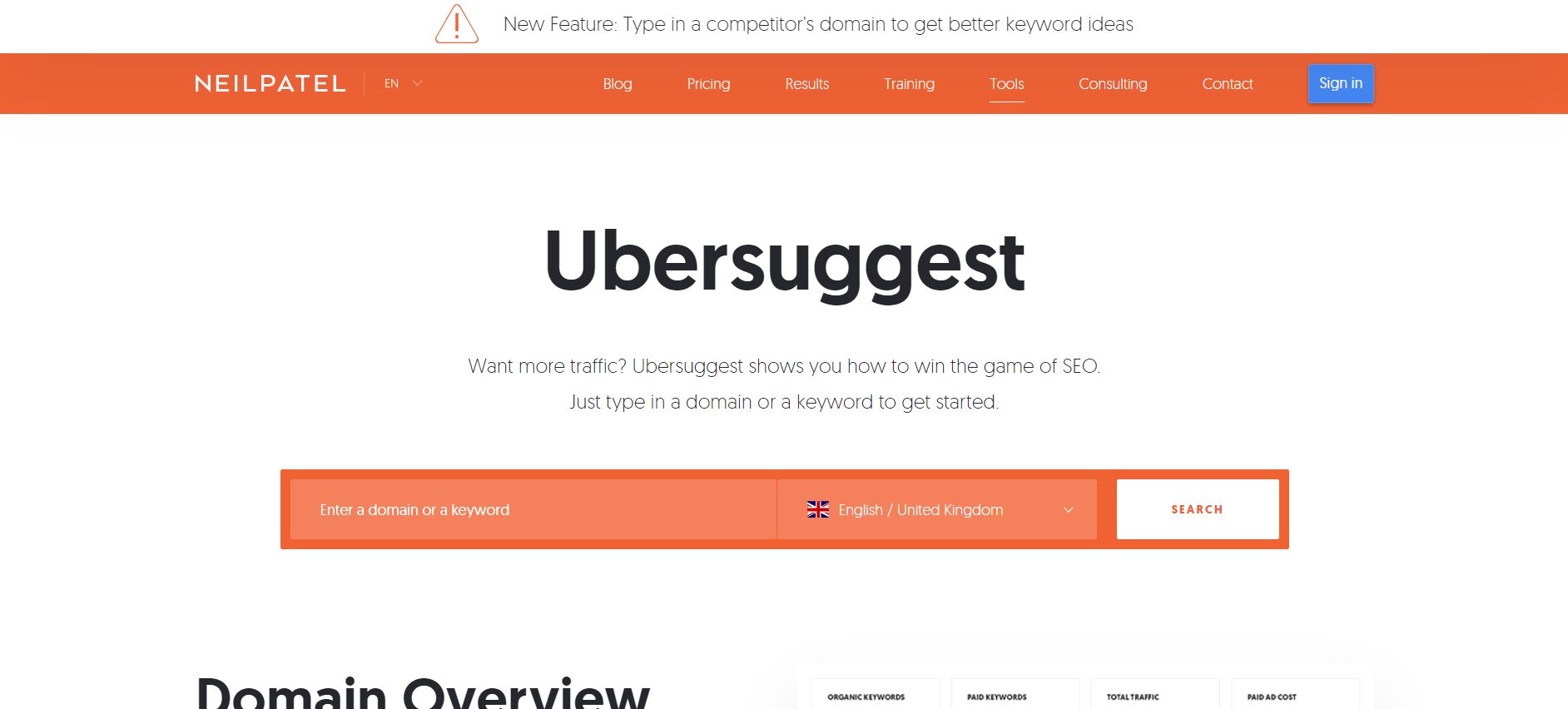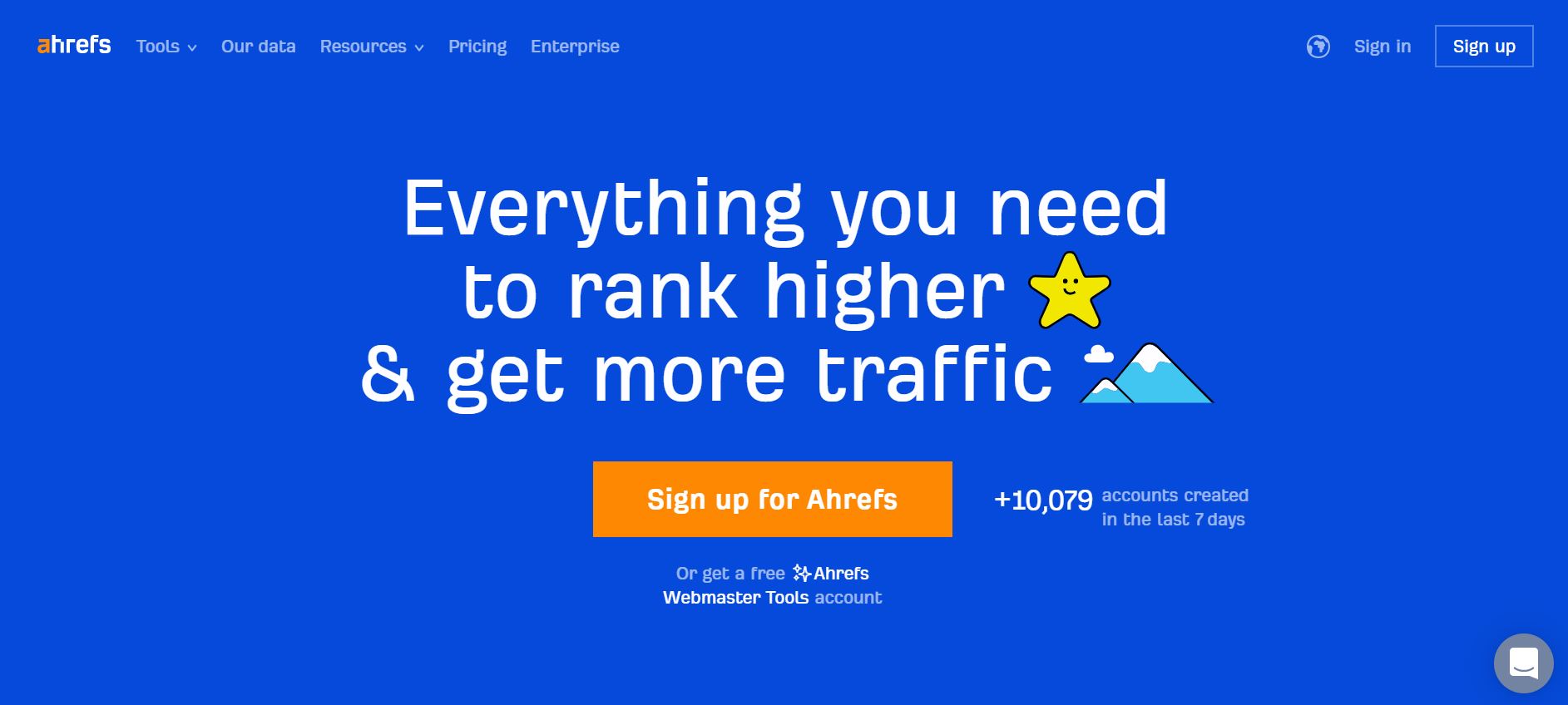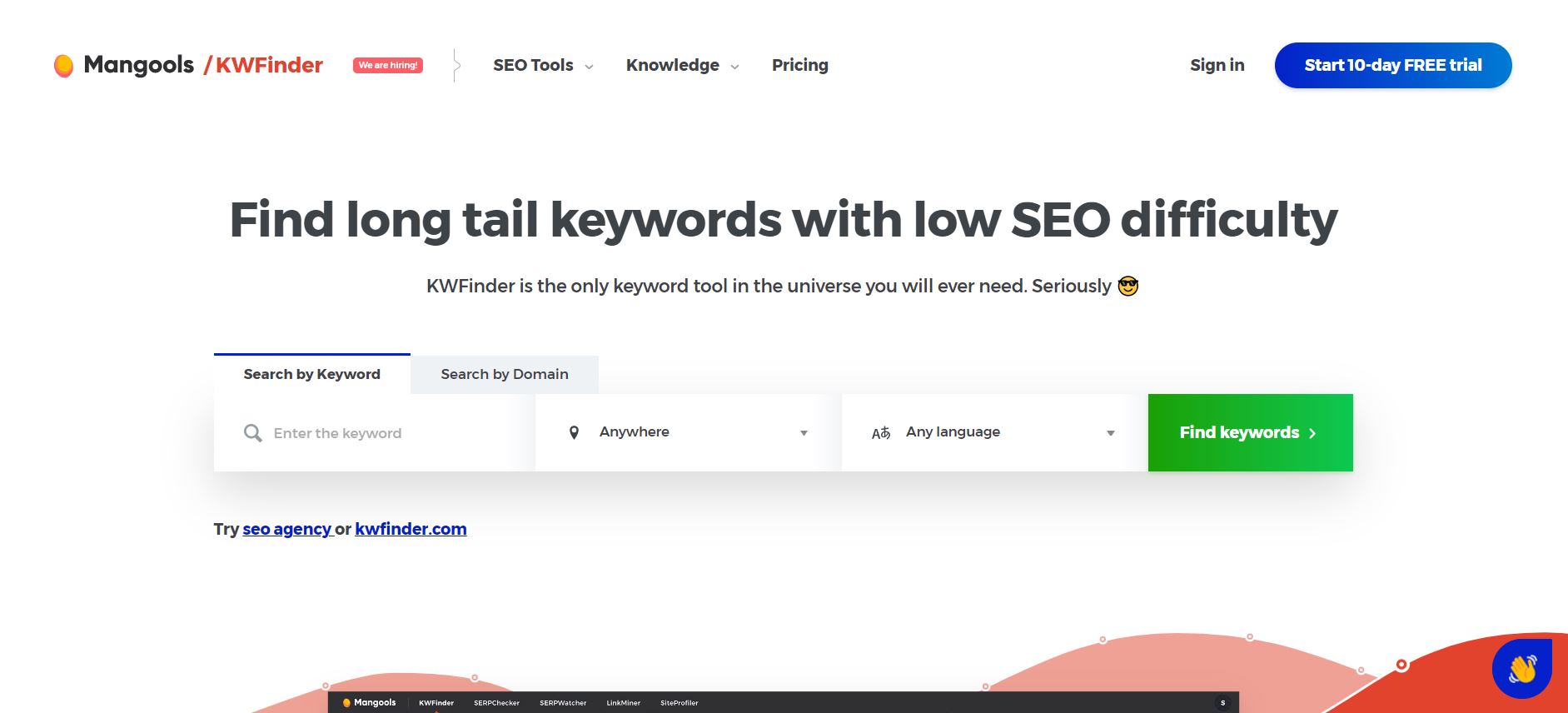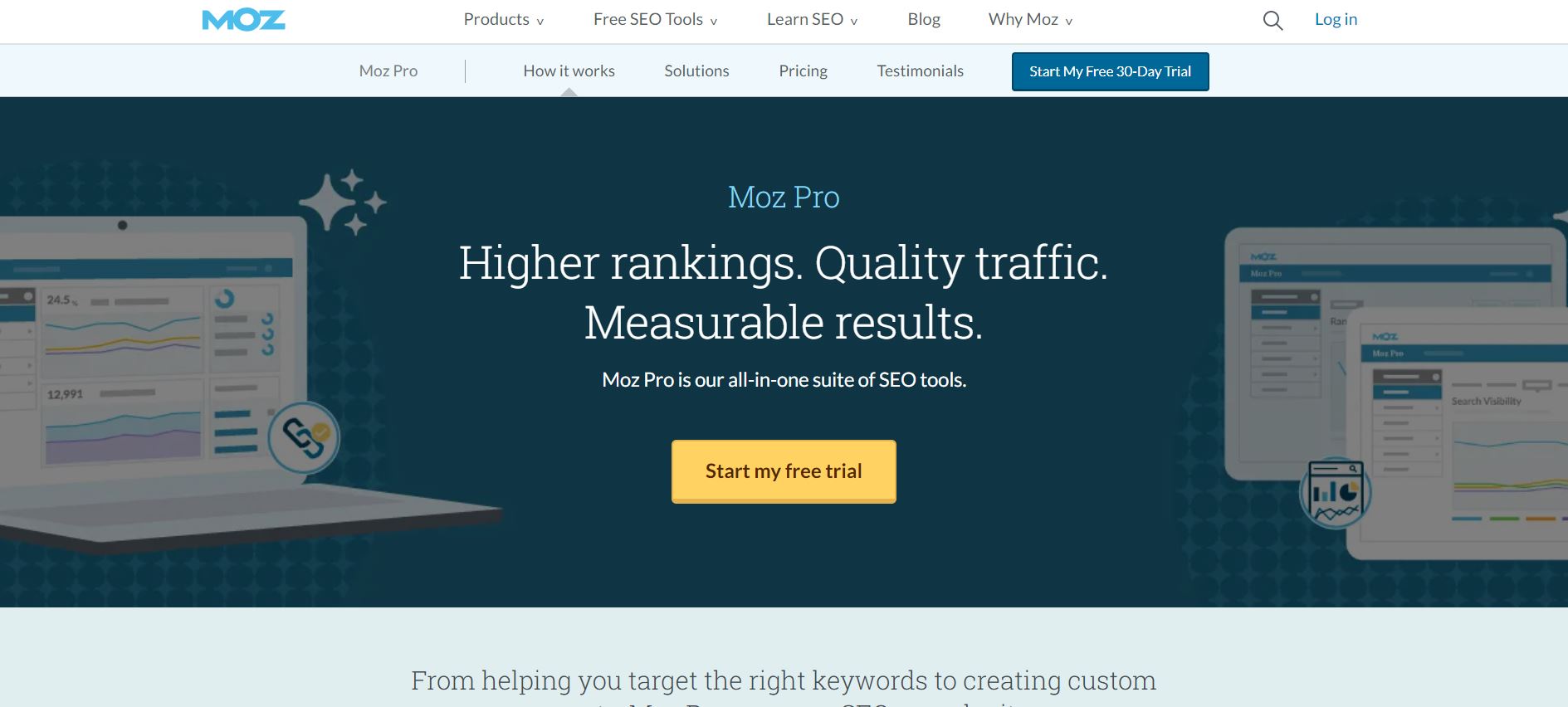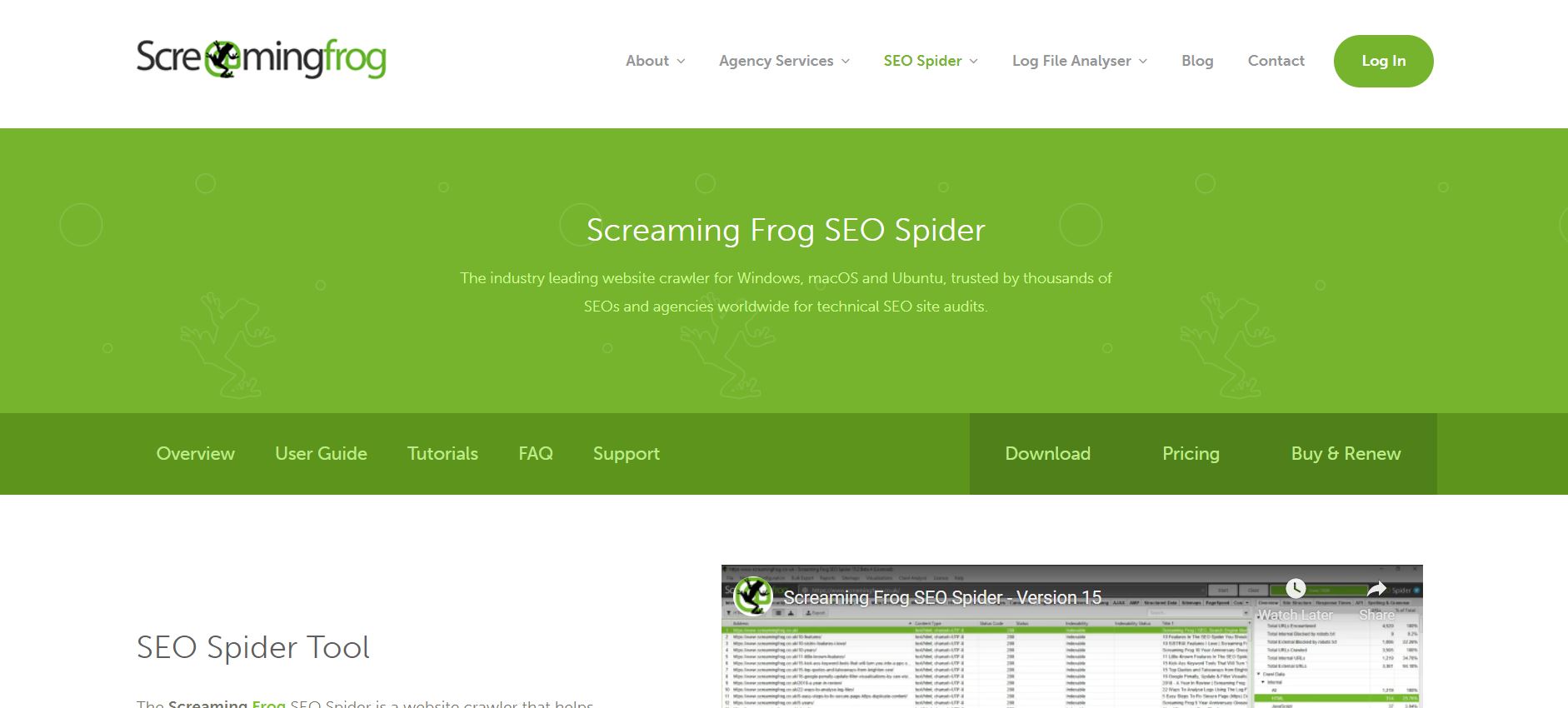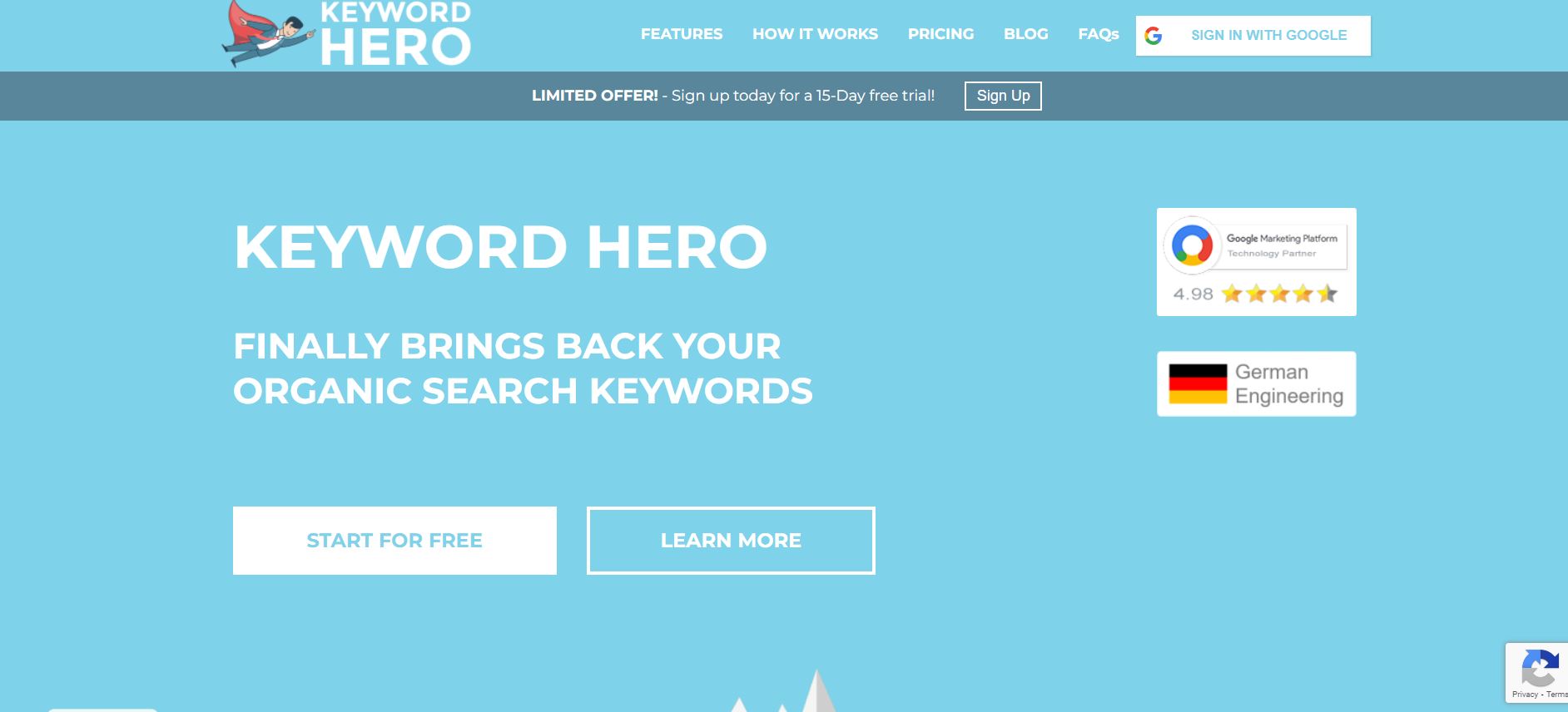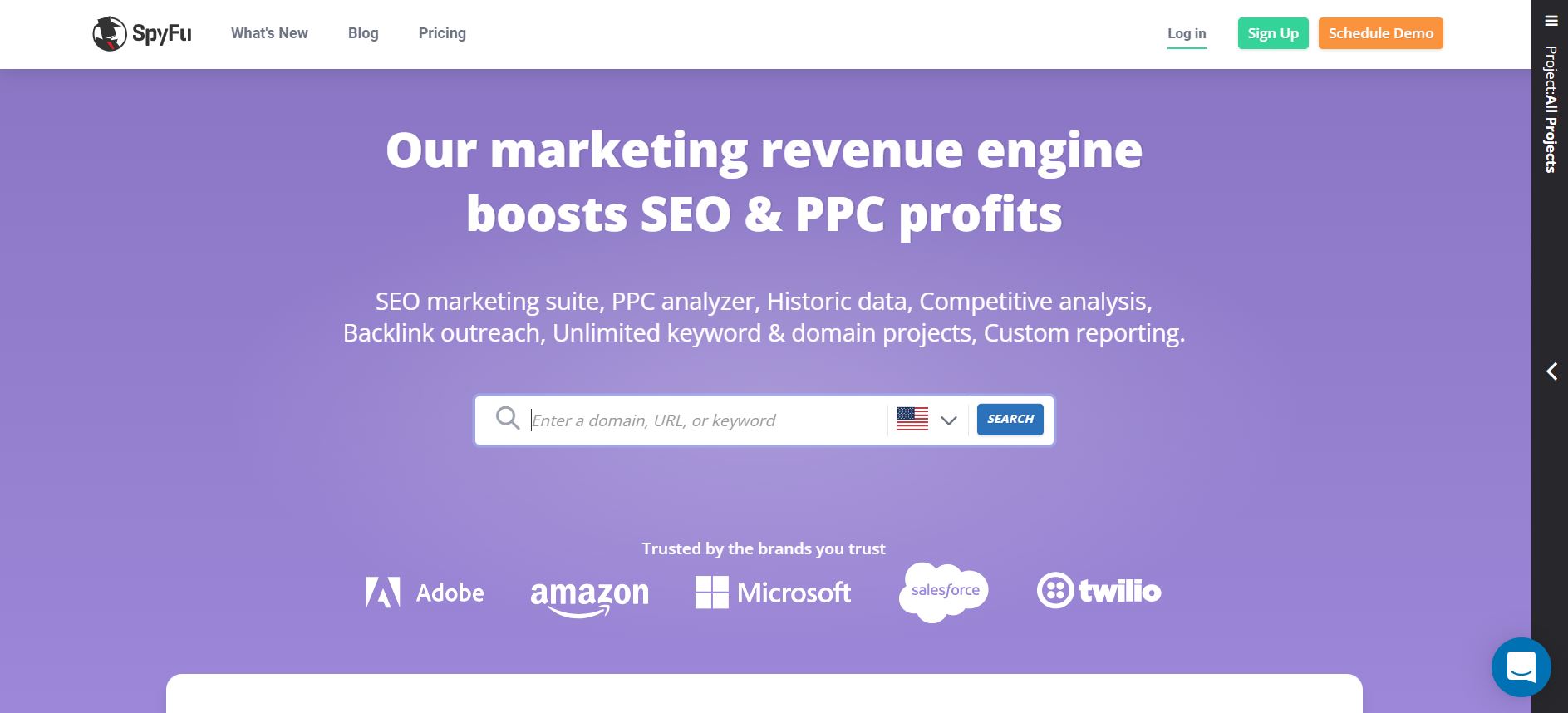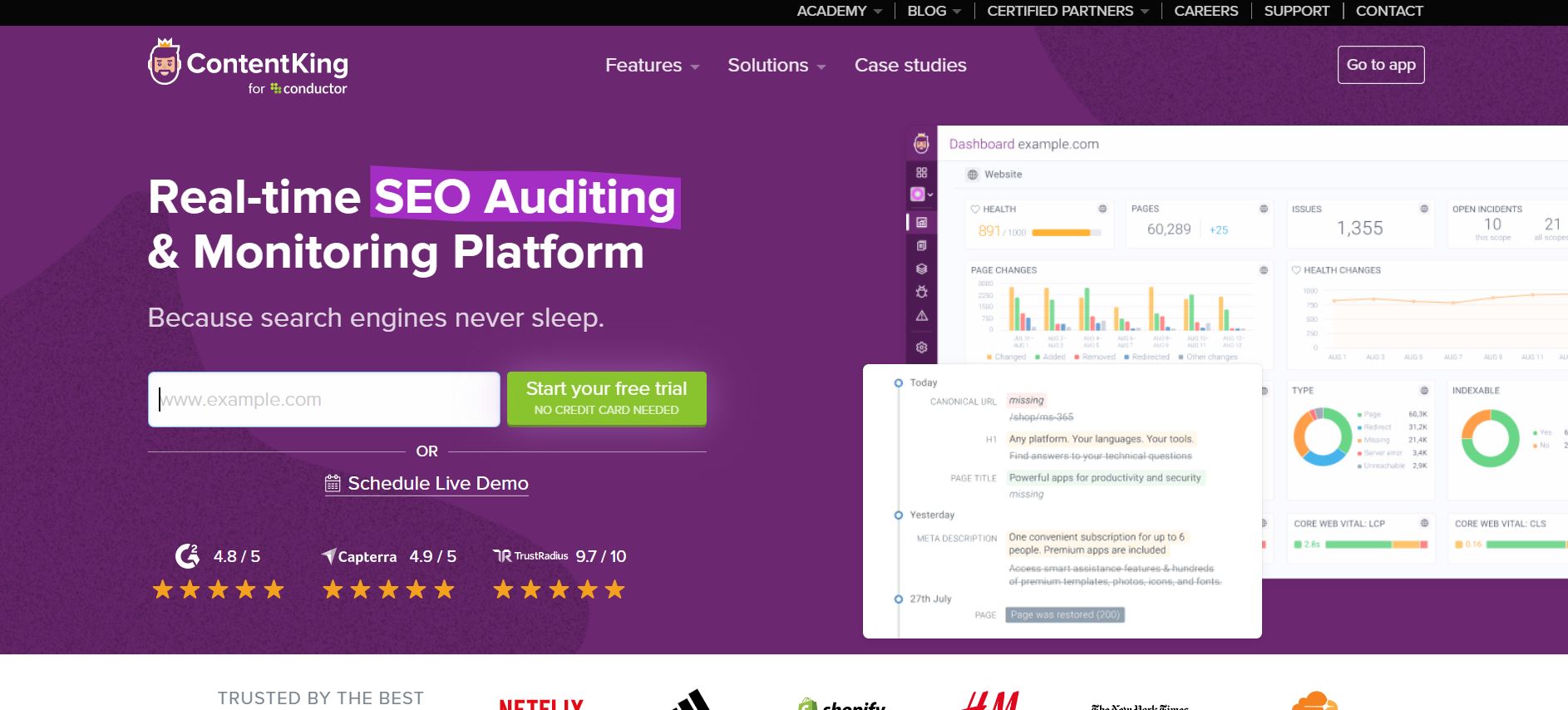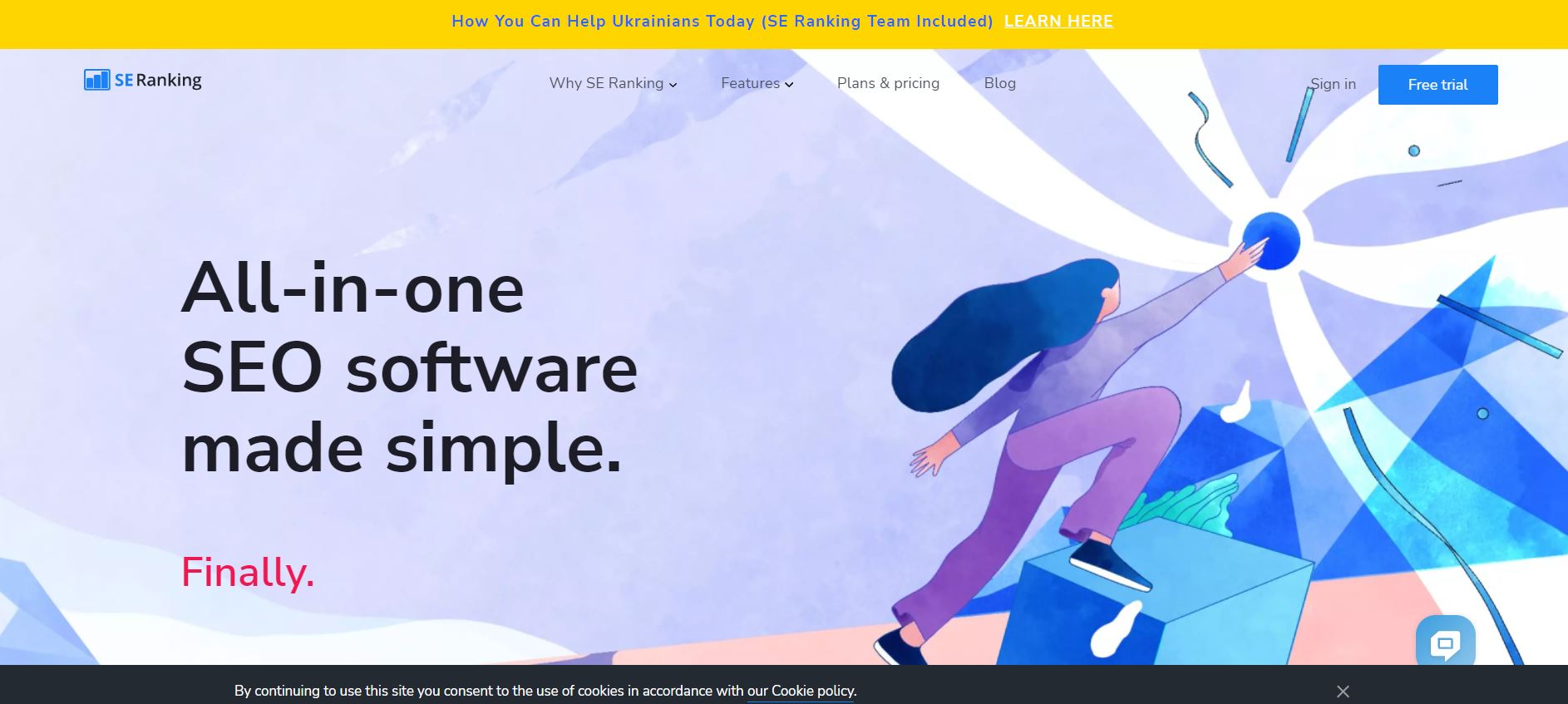Search engine optimisation (SEO) is a never-ending process. Optimising a piece of content for SEO is just the start, you’ll then want to monitor the performance of that piece of content and be mindful of any Google algorithm updates that may affect your search ranking. Monitoring and auditing are two important methods that can help you keep track of your SEO efforts. The good news is there’s a wealth of search engine optimisation tools that exist to help you do both. As a result, you will be able to tweak your website content in order to improve your search engine rankings.
Best tools for SEO audit and monitoring
These tools are critical for your typical search strategy because they allow you to analyse the aspects of your site that Google and other search engines consider vital. The purpose of marketing is to produce qualified leads, because of this marketers need to keep tabs on how their web pages are performing, as well as identify ways to increase organic web traffic. Let’s look at some of the most popular tools for auditing and monitoring the performance of your website.
Remember: These tools are free to use, but a premium version with more features may be available. We’ve broken down some of the most useful features of each tool, as well as how to make the most of them for your SEO strategy.
Free SEO tools
1. LOCALiQ Website Grader
LOCALiQ’s Website Grader provides an in-depth analysis of your website, social media accounts, online listings, and so on, to create an overall digital score for you. The best part? It’s completely free.
The LOCALiQ Website Grader will:
- Score your online presence.
- Provide a business benchmark summary.
- See how your presence compares to your competitors.
- Recommend solutions to generate leads and build your presence.
By analysing this information, you’ll be able to see actionable areas for improvement, so you can make changes and get great results.
2. HubSpot Website Grader
Simply enter the URL of your website into HubSpot’s Website Grader to receive an immediate report card with practical insights about your SEO efforts.
You may use the HubSpot Website Grader to:
- Monitor website performance: Get instant feedback on your website’s performance, uncover particular performance issues, and get clear, practical advice on how to improve them.
- Get on-demand support: Get step-by-step instructions on how to improve your website.
- Fix specific website problems: Get access to a five-lesson HubSpot Academy course on Website Optimisation to learn how to solve particular problem areas on your website.
- Improve mobile friendliness: Learn how to make your website mobile-friendly and accessible for users who seek services or products via mobile.
- Boost web security: Improve website security by implementing best practices.
- Improve user experience: Personalise the user experience on your website to make it more enjoyable for users.
3. Google Search Console
Google Search Console includes many tools to assist you with ranking in the SERPs for the terms and phrases your target audience is searching for. If you’re a business owner or part of a marketing team, Search Console can help you start from scratch with an SEO analysis or refresh an existing SEO plan with new and effective keywords. Google Search Console is a free tool that monitors, debugs, and optimises your website without requiring you to know how to code.
Here are some examples of what Google Search Console can inform you about and assist you with optimising:
- Keywords: Learn about the keywords for which your web pages are now ranking.
- Crawl issues: Identify whether your website has any crawl errors.
- Mobile responsiveness: Determine how mobile-friendly your website is and look for ways to improve your users’ mobile experience.
- Google index: Check how many of your web pages are in Google’s index (if they aren’t, you can submit a page for indexing using the tool’s URL inspection tool).
- Analytics and metrics: Clicks, impressions, average click-through rate (CTR), and average position are examples of website-related metrics that matter to you.
4. Google Analytics
Although Google Analytics has a premium version, the free version can assist you in managing your website’s SEO – this is especially true when combined with Google Search Console. All of your website’s SEO data will be centralised and collated in this way, and you’ll be able to use queries to find areas for improvement with the keywords and phrases you want your website and web pages to rank for.
Use Google Analytics free version to:
- Keep your referral traffic tidy: Get rid of any traffic that could sabotage your SEO reports, such as fraudulent traffic.
- Compare organic vs non-organic website traffic: To improve traffic, figure out where your visitors are coming from and optimise those channels.
- Determine engagement metrics: Use Site Content Reports to figure out engagement metrics for each web page, engagement for the directories and pages, page exit metrics, and landing page acquisition, behaviour, and conversion.
- Examine the Assisted Conversions function in the Multi-Channel Report: Determine which of your channels resulted in the greatest conversions and how much value they add to your company.
5. UpCity Free SEO Report Card
UpCity’s Free SEO Report Card allows you to assess your website and see how it compares to the competition. SEO Report Card will send you a report that covers the following topics in exchange for your email address and a few data points.
These topics are as follows:
- Rank analysis: A glimpse of your website’s position on the major search engines.
- Link building: A complete account of how many websites link back to your website.
- On-Site analysis: Examines how well you integrated your core keyword throughout your website.
- Website accessibility: Details on the speed and accessibility of your site.
- Trust metrics: A summary of your site’s level of authority or trust.
- Current indexing: The number of pages on your site that have been indexed.
6. Internet Marketing Ninjas
Internet Marketing Ninjas is an SEO firm that offers several free tools for comparing your website to the competition, optimising web pages for certain keywords, creating meta tags, and increasing organic traffic.
Here are a few examples of free Internet Marketing Ninja SEO tools that you may use:
- Broken link tool: Use the site crawl feature to produce an XML sitemap for your website by identifying broken links and redirection.
- Image metadata: Review all of your web pages’ page links (external, internal, etc) to see what’s working and what needs to be updated.
- Tool for on-page optimisation: Use this to access the content, metadata, and internal links on your website.
- Side-by-side comparison: Compare the SEO of a competitor’s web pages to your web pages.
- Page load time: Determine how long it takes for each component of a web page to fully show.
7. Bing Webmaster
Bing Webmaster gives you access to a variety of tools that provide insight into your website, including reports, diagnostics, and SEO tools. The free SEO tools you can use can help you examine your website, manage backlinks, and review keywords to ensure that your site is well-optimised for organic search.
Other things you may perform with Bing Webmaster’s SEO tools are as follows:
- Backlink profiles: Learn about the referring pages, domains, and anchor links in your backlink profile.
- Make a keyword search: Determine which keywords and phrases your target audience is looking for, as well as the number of searches for those terms.
- Make use of the site scanning function: Examine your website for technical SEO errors.
- Obtain SEO reports: Examine your website and individual site pages for any mistakes.
8. Google Trends
When your organisation is already established, traditional SEO tools like the ones we’ve already described are useful for conducting research and audits. But what if you’re establishing a new company and want to discover what the most popular industries, themes, and ideas are? Google Trends is an excellent resource for uncovering untapped possibilities and generating a big keyword landscape for your website. You should be aware that Google Trends does not provide granular data. This tool works best when used as a compass to guide your SEO strategy and then paired with a more sophisticated programme like HubSpot’s SEO Marketing Tool.
Here are some things to check for in Google Trends:
- Trends: Look for global trends in specific countries or regions.
- Popular topics: Find popular persons and long-tail keywords that are related to them.
- Comparisons: Trends are compared and contrasted across time.
9. Seolyzer
Seolyzer is a free site crawling, log analysis, and SEO tool that will help you figure out how Google sees your website. Seolyzer uses information left in your server’s log files by crawling bots while viewing your site to identify and build SEO key performance indicators (KPIs). Error codes, redirects, and page speed performance are also identified by the tool.
Seolyzer can also assist you with:
- Keep an eye on SEO: Concerns like slow response times, error warnings, and crawl traffic so you can fix them before they cause major problems.
- Manage your unique KPIs: Analyse page performance, crawl traffic, HTTP status codes, active and new pages, and desktop versus mobile responsiveness to manage your specific KPIs.
- Segment web pages: Determine which of your web pages are the most crawled.
- Compare web pages: See which sites Google considers to be the most significant to your company’s bottom line.
- Measure SEO impacts: Understand the impact of your SEO efforts on a page-by-page or category-by-category basis.
10. SEOquake
SEOquake is a free Google Chrome extension that examines a web page’s SEO characteristics automatically. On-page SEO audits, internal and external link reviews, real-time URL and domain comparison, and data file export are all part of this service.
SEOquake can also be used for the following tasks:
- Link analysis: With the new link Examiner function, you can get a thorough analysis of how all of your links are performing, including URLs, anchor text, and other link categories.
- Examine your website’s SEO: To see if there are any faults that search engines could uncover.
- Inform stakeholders of your findings: Your SEO analysis results can be exported as an editable and shareable report.
11. Seobility
Seobility is a free SEO analyser. You can use it to see how well your website adheres to today’s SEO best practices. Simply enter your website’s URL to have it examined and obtain recommendations on how to improve its performance. You’ll get 1,000 subpage assessments, email reporting and alerts, and keyword tracking in addition to a complete SEO audit of your website.
Here are some additional benefits of using Seobility:
- Identify technical flaws: Recover lost traffic and avoid future traffic dips by swiftly resolving on-page SEO issues.
- SEO scoring: Receive an SEO score that takes into account a variety of website variables such as metadata, page quality, link structure, and more.
- Analyse meta-information: Understand the specific SEO concerns such as meta titles/descriptions, meta tags, and invalid or inaccurate domain names or page URLs.
- Opportunities for optimisation: Identify areas for improvement in terms of page speed and quality (related to text, duplicate content, responsive design, and alt attributes for content).
- Link structure suggestions: Get information about your headers, internal links, and erroneous anchor text to better understand how your page and link structure may be improved.
- Server issues: Identify particular server issues relating to any redirects, HTTP headers, or CSS and JavaScript files and correct them.
12. Check My Links
Check My Links is a Google Chrome extension that checks for broken links on internal and external web pages. Check My Links, for example, can tell you how many links a Wikipedia page has in total and how many of those links are broken if you search for a term on Wikipedia. This is advantageous since you can immediately correct any broken links (or hopefully before a page goes live). Check My Links according to its founders, is great for developers, content editors, and web designers.
Here are some more uses for Check My Links:
- Identify broken links: Go through each link on your website and look for those that aren’t working.
- Issues with auto-highlighting: The good links are shown in green, while the broken ones are highlighted in red.
- For further investigation, export broken links: In one click, copy all of your terrible links to your clipboard.
13. BROWSEO
BROWSEO is an SEO browser that allows you to study your webpage in a limited style, allowing you to analyse its UX and content while learning about its SEO. Once you’ve entered the URL, the results will focus on your HTML, allowing you to comprehend the page’s structure, search phrases, and other SEO-related elements.
Here are some examples of what you can accomplish using BROWSEO:
- Look at the word count on the page: On your website, find the sweet spot for copy length.
- Calculate the number of internal and external links on each page: To determine how well your linking strategy functions on each page.
- Examine your entire metadata: Including title tags, alt text, and meta descriptions.
14. Ubersuggest
Are you looking for more keyword suggestions? Ubersuggest is a free Google Chrome extension and SEO tool that displays monthly search volume, cost per click (CPC), and competition data for keywords.
Ubersuggest’s free keyword tool will provide you with:
- Keywords suggestions: Hundreds of keywords ranging from broad terms to long-tail phrases.
- Keyword breakdown: Ubersuggest will give you the volume, competition, and even seasonal trends for each keyword.
- Keyword list: To make things easier, Ubersuggest will also generate a list based on what’s working for your competitors and what people are typing into Google.
Paid SEO tools
Let’s have a look at some paid SEO tools next.
Note: Some of these programmes offer free trials and also provide completely free plans with limitations on flexibility and customisation.
1. Ahrefs
Ahrefs is a sophisticated SEO tool that analyses your website’s structure and generates keywords, links, and ranking profiles to help you make better content decisions.
Pricing:
Free: 7-day trial.
Lite: £74 per month.
Standard: £149 per month.
Advanced: £299 per month.
The following are some of Ahrefs’ key features:
- Site explorer: Displays information about the performance of individual web pages on your website.
- Content explorer: This tool allows you to look for high-performing websites based on keywords and subjects.
- Keywords explorer: Calculates the monthly volume of searches and click-through rates for specified keywords.
- Site audit: Crawls your domain’s designated verticals and identifies a variety of technical faults at the page level.
2. SEMrush
SEMrush is a comprehensive dashboard that tracks the performance of domains and individual pages. The SEO Toolkit is one of the many resources offered by SEMrush. The toolkit lets you track a website’s visibility increase over time, as well as determine the keywords it ranks for, the page’s rank for a keyword, the keyword’s monthly search traffic, and more.
Pricing:
Free: 7-day trial.
Pro: £96 per month.
Guru: £183 per month.
You can also use SEMrush to:
- Analyse backlinks: From other websites to your site to build links.
- Use the Keyword Magic tool: To find all of the keywords you’ll need to construct a successful SEO plan.
- Examine the strategies of your competitors: Determine the paid keywords or ad copy utilised in your competitors’ PPC campaigns.
- Get suggestions: Learn how to improve your organic traffic by tweaking your content.
3. KWFinder
When you merely need to undertake keyword research, you don’t always need an SEO tool with all the bells and whistles. KWFinder is a fantastic piece of software that bridges the gap between SEO and copywriting. You’ll come across keywords that aren’t too difficult to rank for yet have the potential to generate traffic. What sets KWFinder apart is how smoothly it switches between languages and regions, allowing you to serve your audience no matter where they are in the world.
Pricing:
Free: 10-day trial.
Basic: £24 per month.
Premium: £32 per month.
Agency: £64 per month.
KWFinder has many useful functions, including:
- Long-tail keyword insights: Look for long-tail keywords that will increase your traffic prospects.
- Keyword insights from competitors: Compare your competitor’s keyword strategy to your own and discover new keyword prospects.
- SERP competition analysis tool: Use this tool to see what aspects readers are looking for on your pages.
- Local keyword research tool: See what local searchers are looking for and appeal to local markets for more speciality traffic.
4. MozPro
The Moz Pro subscription is a one-stop shop for improving your company’s search ranking. Moz’s research tools provide subscribers with the tools they need to find SEO opportunities, measure growth, create reports, and improve their efforts.
Pricing:
Free: 30-day trial.
Standard: £79 per month.
Medium: £142 per month.
Large: £234 per month.
Premium: £477 per month.
MozPro also comes with:
- Crawler for websites: Analyses up to 3,000 links on a single URL.
- Email report: The crawl data for the pages your site connects to is included in an email report.
- Information about numerous crawl ability factors: Such as duplicate content and redirects, that may be affecting your SEO performance.
5. Screaming Frog SEO Spider
This tool scans the websites you choose for common SEO difficulties and examines the URLs for typical SEO concerns. This tool streamlines and simplifies a time-consuming process, which is especially useful for larger websites. (Manually evaluating the same URLs could take hours or days.)
Pricing:
Free or £149 per year.
Screaming Frog SEO Spider also has the following features:
- Java program: Screaming Frog provides a simple Java programme with tabs that are easy to browse.
- Simple Excel export: Examine your SEO analytics in greater depth.
6. AnswerThePublic
AnswerThePublic is a keyword and search listening tool that listens to autocomplete data from Google and other search engines and then generates a list of phrases and questions that people are searching for surrounding your term. This enables you to tailor your website and content to your target market to boost traffic and conversions.
Pricing:
Free: Up to 3 searches daily.
Monthly: £79 per month.
Annual: £63 per month.
Expert: £158 per month.
You can also use AnswerThePublic to:
- Receive notifications: See when your most relevant keywords come up in conversation.
- Track keyword trends: Understand how your target audience and customers conduct keyword research.
- Search in real-time: In real time, see what keywords and phrases your audience is looking for.
- Get website and blog design inspiration: Based on keyword analysis, come up with new content ideas.
7. Keyword Hero
Within your Google Analytics account, Keyword Hero matches your visitors’ sessions with the terms they used to find your page. In other words, this tool helps you understand your organic traffic’s search intent.
Pricing:
Free: 15-day trial.
Big Hero: £7 per month.
Giant Hero: £39 per month.
Ultimate Hero: £119 per month.
You can also use Keyword Hero to perform the following tasks:
- Determine the amount of organic traffic and conversions: Discover the level of success you get from your chosen keywords.
- Separate traffic: Make a distinction between brand and non-brand search traffic.
- Improve your SERP ranking: By optimising your website for relevant keywords.
- Details about the query: Determine whether your visitors came to your site using informational or transactional queries.
8. SpyFu
SpyFu is a Google Ads competitor keyword research tool. It assists with PPC competitive research, SEO competitive research, and the construction of custom lists and domains in addition to keyword research. The application assists you in driving traffic to your Google Ads campaigns and website, monitoring both sponsored and organic ranks on Google, Bing, and Yahoo, and obtaining accurate and reliable lead contact information.
Pricing:
Basic: £31 per month.
Professional: £63 per month.
You may also use SpyFu to:
- Obtain the PPC keywords of a competitor: Utilise this knowledge to create more competitive PPC strategies in the ad arena.
- Obtain the SEO keywords of a competitor: Use this knowledge to create organic keyword strategies that are more competitive in the SERP.
- Review keyword ranking trends: the evolution of a page’s or website’s keyword ranking over time.
- Discover keyword suggestions: For your Google Ads to improve conversion rates.
9. ContentKing
ContentKing is a real-time SEO auditing and content tracking tool that monitors your website 24 hours a day, 7 days a week to ensure that any SEO concerns don’t go undiscovered for long. Because the tool is cloud-based, there is no need to install anything, and your data and reports are accessible whenever you need them.
Pricing:
Basic: £111 per month.
Standard: £255 per month.
Pro: £357 per month.
Enterprise: £1018 per month.
You can also use ContentKing to:
- Improve your SEO: By making use of ContentKing’s 24/7 website audits (and algorithms) to learn more about your SEO and receive tasks to assist you optimise your pages.
- Receive notifications: Receive notifications anytime something on your website breaks or becomes less optimal, so you can quickly address the problem.
- Track Changes: Keep track of all your site’s content modifications (such as updates to individual web pages and changes to robots.txt) and search the history of your changes.
- Data visualisation: Real-time dashboards and reports are available.
10. SE Ranking
SE Ranking is an all-in-one SEO platform that assesses the health and performance of websites, as well as keyword rankings and traffic. It also gives you information about your competitors, helping you to better grasp the SEO landscape and make adjustments to your marketing approach. You may create custom SEO reports with branding and personalization choices because SE Ranking is a white-label SEO tool.
Pricing:
Essential: £15 per month.
Pro: £34 per month.
Business: £71 per month.
You may also use SE Ranking to:
- Keyword rank check: Monitor your and your competitors’ keyword positions, give accurate keyword rank analysis, analyse SEO potential, and display historical data changes.
- Website health audit: Evaluate all of your website pages to get an in-depth report of website technical and performance issues, along with recommendations for how to fix them.
- Analyse your competitors: Website traffic patterns, keyword rankings, and other statistics in both organic and paid searches.
- Backlinks analysis: Analyse any website and provide a comprehensive backlink profile analysis that includes the dynamics of new and lost site links, referring domains, anchor text distribution, and the most often linked pages.
You can more effectively audit and monitor your website with these tools. You’re always aware of which metrics are crucial to your site’s success, and you take proactive steps to ensure that your site performs well enough to compete in the market. Following SEO best practices and utilising the tools described above can considerably improve your site’s chances of promotion.

